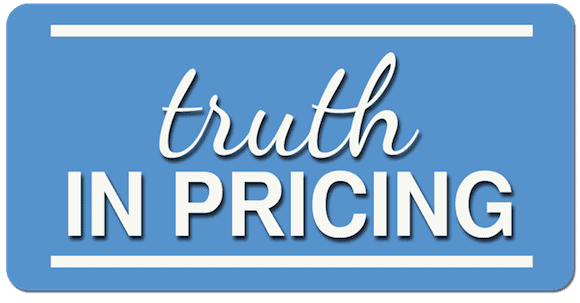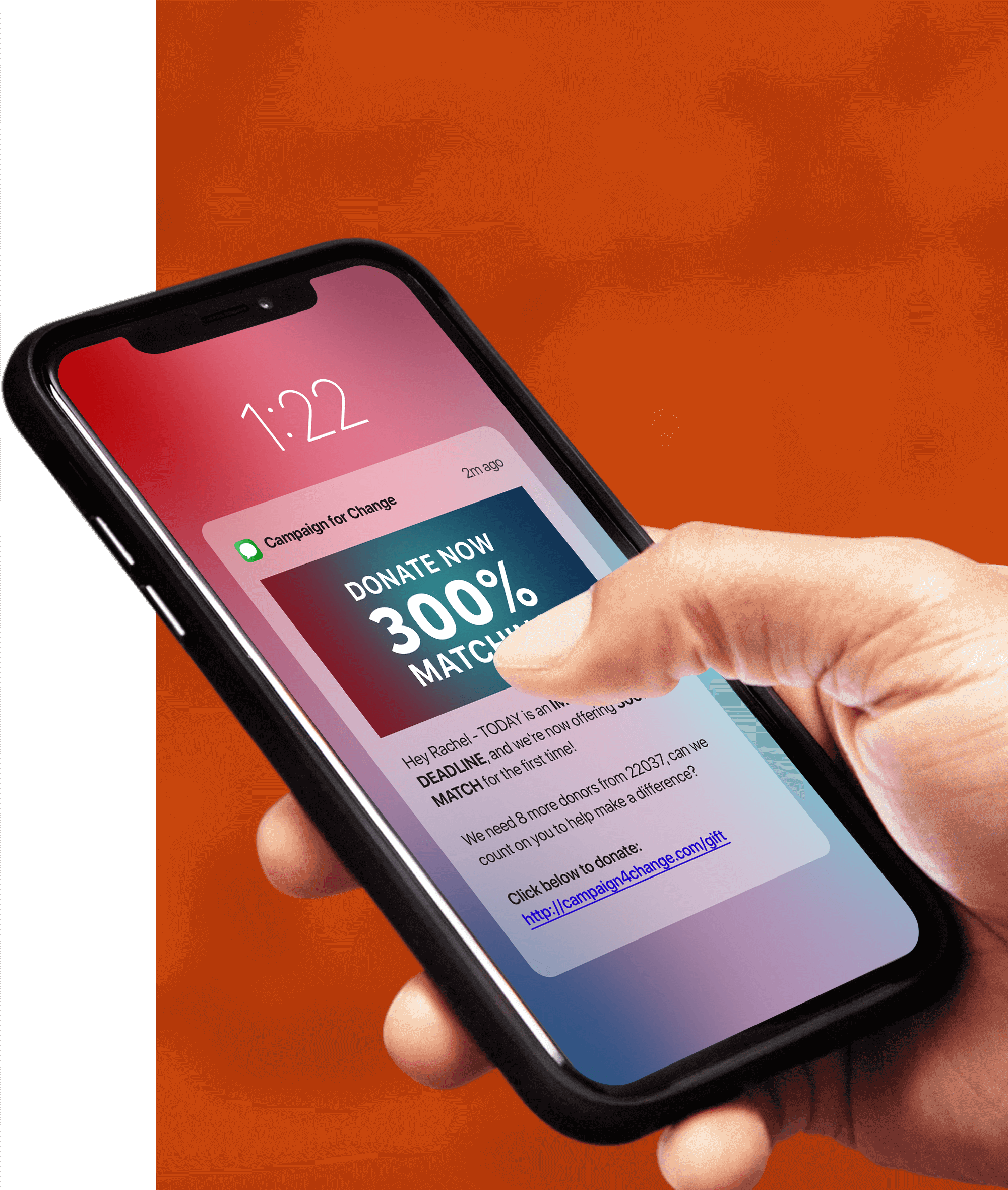
Did you know that SMS providers like Tatango have to pay a per-message fee to an SMS aggregator, each and every time a text message is sent? Did you also know that in addition to the per-message fee charged by an SMS aggregator, SMS providers must also pay an additional per-message fee for text messages sent to phone numbers on certain wireless carriers? These additional per-message fees are usually called “carrier pass-through fees” by SMS aggregators, as the SMS aggregators simply pass along these fees from the wireless carriers to the SMS providers.
What wireless carriers have pass-through fees for sending SMS messages to customers on their networks? Currently, Sprint, Boost, Virgin Mobile, T-Mobile, U.S. Cellular, Cricket, and MetroPCS. How much are these pass-through fees? It depends on both the wireless carrier, and whether the text message is being sent or received. To get you caught up on SMS marketing industry lingo, you’ll want to know that text messages sent from an SMS provider to a wireless phone number are commonly called “Mobile Terminated (MT) Messages”, and text messages sent from a wireless phone number to an SMS provider are commonly called “Mobile Originated (MO) Messages”. Below are the wireless carriers that charge these pass-through fees, how much each SMS pass-through fee costs, and what types of text messages these fees apply to.
- Sprint – $0.005 – MT & MO Text Messages
- Boost – $0.005 – MT & MO Text Messages
- Virgin Mobile – $0.005 – MT & MO Text Messages
- T-Mobile – $0.0025 – MT & MO Text Messages
- U.S. Cellular – $0.0035 – MT Text Messages
- Cricket – $0.0025 – MT Text Messages
- MetroPCS – $0.0075 – MT Text Messages
What’s interesting to note is that these fees are relatively new to the industry, as it was September 13, 2010, when T-Mobile became the first wireless carrier to start imposing these pass-through fees for sending text messages on their network. While T-Mobile was the first wireless carrier to actually implement a pass-through fee, it was actually Verizon that first proposed the idea of a pass-through fee, two years before T-Mobile on October 8, 2008. As far as I can tell, the first SMS aggregator to break the news regarding Verizon’s new pass-through fees was OpenMarket, which sent out the following email to SMS providers.
“Effective November 1, 2008, Verizon will assess a transaction fee of $0.03 for every MT message processed on its network. Please note that these message fees will apply to standard-rate and premium programs. Transaction fees will not apply to Free-2-End-User, Mobile Giving, or Non-Profit organizational programs. Pursuant to your Commercial Services Agreement with OpenMarket (including former Simplewire Agreements) concerning Third-Party/Operator Fees, in the event message fees are assessed by Verizon for any of your programs, these fees will be passed on to your company at cost.”
This email sent the entire SMS marketing industry into a panic for a few reasons. The first reason being that many SMS providers were unaware of the clause regarding “Third-Party/Operator Fees” in their Commercial Services Agreements with their respective SMS aggregators. This, or they were aware of the clause but assumed it was in reference to setup fees, as prior to Verizon’s announcement, the only pass-through fees that were imposed by wireless carriers were during the short code setup process. The second reason being that for SMS providers to maintain their existing margins with this new “transaction fee” being imposed by Verizon, SMS providers would have to double the cost of their service to clients and to make matters worse, they had less than a month to do this. The third reason is that many in the industry saw Verizon’s move as only the first domino to fall in a long line of wireless carriers that would jump at the chance for additional revenue if Verizon was able to implement this additional fee.
The day after Verizon’s announcement, October 9, 2008, MobileMarketer ran a story titled Verizon Wireless transaction fee could affect SMS text messaging, where the email from OpenMarket was published and industry veterans shared their outrage at Verizon’s new $0.03 per-message fee. This story got picked up all over the internet, including an article in TechCrunch titled Will Verizon’s New Three-Cent Hike Kill SMS Services? The very next day, October 10, 2008, Verizon released a statement, the entirety can be found here, but the key parts were as follows.
“To that end, we recently notified text messaging aggregators — those for-profit companies that provide services to content providers to aggregate and bill for their text messaging programs — that we are exploring ways to offset significantly increased costs for delivering billions upon billions of text messages each month.
“Specific information in one proposal, which would impose a small per-message fee on for-profit content aggregators for commercial messages, has been mistakenly characterized as a final decision to implement. We don’t envision this type of change to in any way affect nonprofit organizations or political and advocacy organizations.
Then miraculously overnight, the idea of Verizon implementing any type of “transaction fee” for short code messaging completely disappeared, never to be heard of again.
Two years later on September 13, 2010, T-Mobile announced that on October 1, 2010, they would be implementing their own pass-through fee of $0.0025 for both outbound and inbound text messages on their network. While T-Mobile’s pass-through fee was only a fraction of what Verizon’s was, the proposal was met with industry outrage as many companies like Facebook and Twitter were rumored to be exempt from these pass-through fees. This resulted in many mobile marketing service providers publicly accusing T-Mobile of creating an unlevel playing field and violating anti-trust laws, in a Mobile Marketer article titled T-Mobile SMS Rate Hike Raises Anti-trust Issues. Things got so heated that Cha Cha, a popular text messaging question & answer service, threatened to shut off their service to T-Mobile customers if the pass-through fees went into effect. Unfortunately for SMS providers and consumers, T-Mobile didn’t back down, and they implemented the pass-through fees as planned on October 1, 2010. In response, Cha Cha blocked T-Mobile customers from using their service, and as of publishing this blog post, this hasn’t changed.
With T-Mobile now successfully charging pass-through fees for text messages, that then opened the floodgates for other wireless carriers to do the same. Five months later on February 15, 2011, Mobile Marketer broke the story that Sprint was planning their own pass-through fee to “take effect as soon as March 1, or within two or three months at the very latest”. Sprint’s pass-through fee would be $0.005 for both inbound and outbound text messages, twice the pass-through fee that T-Mobile was able to implement. Again, SMS marketers cried foul, as it was rumored that larger internet properties such as Facebook and Twitter were again exempt from these pass-through fees. Below is a statement from Cha Cha’s founder & CEO Scott Jones in regard to Sprint’s implementation of a per-message pass-through fee, and his decision to boycott the wireless carrier if they implemented such a fee.
“Effective April 1, ChaCha is being forced to shut off service to our SMS text customers on the Sprint network due to an exorbitant fee increase from the carrier. Sprint currently charges its customers for text messaging and charges text providers like ChaCha for access to the Sprint network. Now Sprint has added another fee for certain text providers, making it cost-prohibitive to continue our free, real-time answers service on which Sprint customers have come to rely for over three years. We find it particularly unfair that other, much larger SMS text providers such as Twitter have been exempted from the Sprint SMS increase.”
Unfortunately, this didn’t stop Sprint, and on April 1, 2011, they implemented their $0.005 pass-through fee for both inbound and outbound text messages. Cha Cha, in addition to other popular content providers such as TMZ and ESPN, shut off their SMS services to Sprint customers, resulting in a consumer backlash on Sprint’s community forum, with comments such as…
- “Sprint has made a huge mistake in charging for this service. I will definitely not be renewing with Sprint again until this is resolved. How ridiculous is this move.”
- “I’ve been with Sprint for over ten years. I am a preferred customer or whatever they called it, but I can’t believe that Sprint and ESPN would not be able to work this out. As a Sprint customer, this is very disappointing. Where can I go and write a letter to Sprint regarding this matter.”
- “I like how, in the Sprint statement, they state “ESPN has chosen to discontinue offering free text message alerts…”? Really, they’ve chosen not to be charged a fee from Sprint, PERIOD! Sprint, correct me if I’m wrong, don’t you charge me a monthly fee to receive “unlimited texts”? Now you want to charge the ESPN to send texts?”
- “Absolutely ridiculous! I pay $400+ every month for service on 8 lines, 5 of which have unlimited texts. I have come to love and depend on ESPN alerts over the last 5 years. I have been a committed Sprint fanboy for 8 years. This is going to make it a lot harder to recommend Sprint to others.”
- “After 14 years this is what will take my business to Verizon.”
- “My contract (I carry 5 lines on my account) will be up in August and I will be going elsewhere. This is just ridiculous.”
- “I have had Sprint for a long long time. I always support Sprint and tell people of the good service I get from Sprint, however, NOT anymore. I will tell everyone I know to NOT use Sprint. I will be changing my plans as soon as possible. I love the ESPN mobile alerts and will get another carrier so I can once again get them.”
The backlash, unfortunately, hasn’t been severe enough for Sprint to change its pass-through fees, and content providers like Cha Cha, TMZ and ESPN still don’t offer their SMS services to customers on the Sprint network. The only good news about the Sprint announcement was that these pass-through fees weren’t being applied to their subsidiaries, Boost and Virgin Mobile.
Almost one year later on March 1, 2012, Sprint implemented the same pass-through fees on both subsidiaries, Boost and Virgin Mobile ($0.005 – MT & MO Text Messages). Surprisingly I was unable to find any evidence of any SMS provider or aggregator making any noise over this new pass-through fee. I’m guessing this was either because Boost and Virgin Mobile only account for a fraction of US mobile subscribers, or after losing the battle against T-Mobile, then Sprint, the SMS marketing industry saw their efforts to curtail these pass-through fees as a lost cause.
Then that same month, MetroPCS started provision short code messaging on their network. Unlike all the other wireless carriers that waited years before implementing a carrier pass-through fee, MetroPCS launched short code messaging on their network with a pass-through fee starting day one. The pass-through fee was charged only for outbound messages and amounted to $0.0075 per message. Again, crickets from the SMS marketing industry.
Seeing that a smaller regional wireless carrier like MetroPCS could get away with charging a pass-through messaging fee, Cricket decided to get into the mix. They announced on April 9, 2012, that effective May 1, 2012, they’d also be implementing a pass-through fee of $0.0025 for outbound text messages on their network. Even more crickets from the SMS marketing industry.
Then on December 18, 2012, while most people were enjoying their holidays, U.S. Cellular announced that they would be implementing a pass-through fee of $0.0035 for all outbound text messages sent through their network. This new pass-through fee would go into effect on January 1, 2013. Again, crickets from the SMS marketing industry (understandable as this was being implemented during the holidays), except for a post on the Tatango blog, which you can read here. Then mysteriously three days after the post appeared on the Tatango blog, U.S. Cellular announced that they had changed their mind about the pass-through fee and it would not go into effect as planned on January 1, 2013, which we also posted about here.
Then on September 27, 2013, we received a notice from our SMS aggregator that the previously announced pass-through fees being imposed by U.S. Cellular were going into effect on October 1, 2013, one business day after we received notice.
At the time of this post, U.S. Cellular is the most recent wireless carrier to impose a pass-through fee, and as much as we’d like to hope they’ll be the last, I highly doubt this will be the case.

